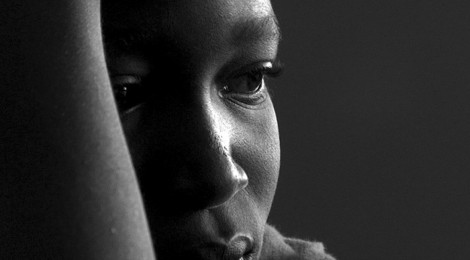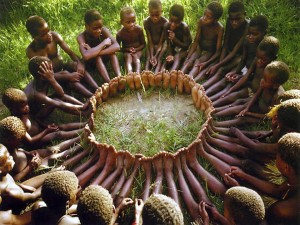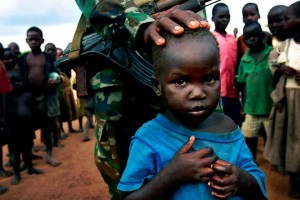
No Place to be a Child: Healing Spaces Amidst Armed Conflict
“If we are to teach real peace in this world, and if we are to carry on a real war against war, we shall have to begin with the children” – Mahatma Gandhi
Over 18 million children are currently living in regions affected by war. While most humanitarian aid groups focus on meeting the basic physical needs of these children, in the midst of armed conflict, cognitive, social and emotional development is often inhibited and overshadowed by regional chaos.
Exposed to violent, traumatic and stressful situations that threaten their sense of stability and well-being, children have few places to simply be children, where they can play, learn and socialize safely. And few resources are in place to help them heal from the psychological burdens of war.
As the need for rehabilitative and restorative measures gains greater recognition by the international community, a growing number of child rights advocates, organizations and researchers are stepping forward to understand the implementation of psychologically therapeutic programs for war-affected children. The challenge is in figuring out what is needed, what is available and what will work across a variety of cultures, contexts and settings.
Seeking to bring psychological care on a tight budget, academics and policy advisors have emphasized evidence-based programs. Theresa Betancourt, professor and director of the research program on children and global adversity at Harvard’s school of public health, and her colleagues are evaluating the effectiveness of child trauma programs based in countries such as Uganda, Sierra Leone, Chechnya, Gaza, Sudan, Kosovo, Bosnia and Croatia.
Individual therapeutic interventions such as trauma focused therapy and narrative exposure therapy have shown promise among children affected by war and are approved by UNICEF as preferred techniques.
Group interventions have been used to accommodate the psycho-social needs of a greater number of children. These include Interpersonal group therapy for depression, creative play, mother-child psycho-education and support, and torture group psychotherapy with cognitive behavioural techniques.
Some other psycho-social initiatives have focused on the creation of Child Friendly Spaces (CFS’s) and Temporary Learning Centers (TLC’s) within refugee camp settings or local communities. These provide a child-centered environment for play, basic education and socialization; and they identify children in psychological distress.
But some concerns have been noted. The focus on trauma can lead to community stigmatization. In addition, these therapies are hard to carry out on a large scale due to the high costs of employing highly-trained professionals. Individualized services are rare and reserved for severely distressed children, usually demobilized child soldiers.
Problems arise when trying to apply western definitions and measures of distress that are not necessarily applicable to other cultures and contexts. And in understanding any given child’s psychological functioning, it is important to factor in ongoing stressful events and the social dynamics that a war-affected child must deal with on a daily basis.
There has been a movement away from a traditional western “clinical treatment” model toward a more inclusive, holistic framework of “psycho-social intervention,” termed to reflect the complex interplay between a child’s psychological and social development.

More effective group interventions for children have tended to be those that involve a school setting, address everyday stressors, utilize a form of trauma/grief-focused psychotherapy or use mind-body relaxation and coping techniques such as meditation, biofeedback and guided imagery.
Benefits include decreases in posttraumatic stress disorder, improved coping skills, and greater psychological relief and psycho-social adjustment.
Still, universal, comprehensive, culturally-sensitive psychological services for war-affected children remain a long way off. For more information on mobile psycho-social and education programs for war-affected children, please check out The Freedom to Thrive Foundation. Email FreedomToThriveFoundation@gmail.com to find out how you can get involved.
– Adriana Wilson, Contributing Writer




